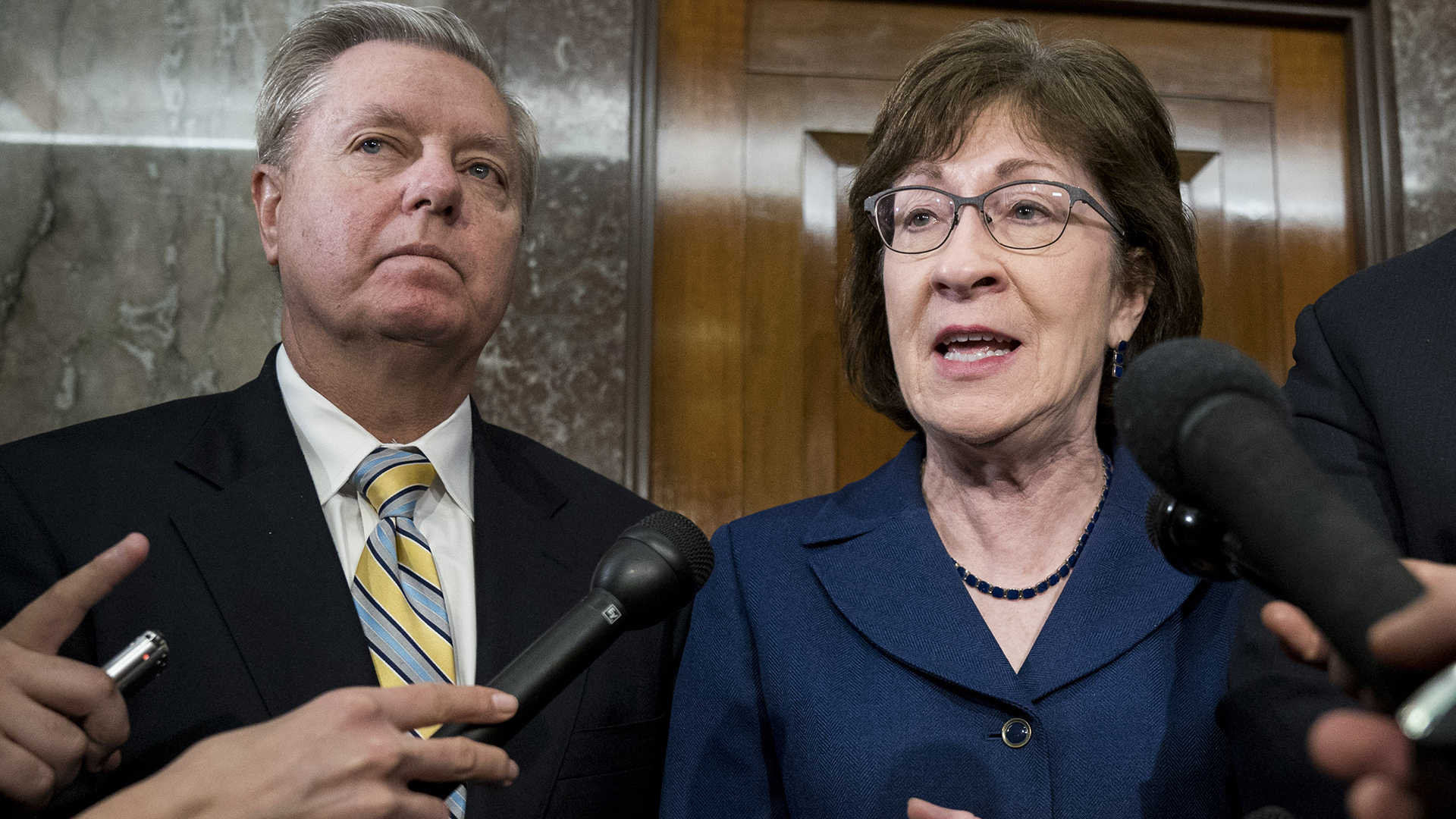OPINION: This article may contain commentary which reflects the author's opinion.
A group of Republican and Democrat senators have reached an agreement on reforms to the Electoral Count Act.
It was announced on Wednesday that the group has agreed on reforms on the 1887 law that governs how Electoral College votes are counted, which came under scrutiny after the 2020 presidential election, NPR reported.
The group was led by Republican Maine Sen. Susan Collins and Democrat West Virginia Sen. Joe Manchin, a press release from the senators said.
They were joined by Republican Sens. Rob Portman, Mitt Romney, Lisa Murkowski, Thom Tillis, Shelley Moore Capito, Todd Young, Ben Sasse and Lindsey Graham, along with Democrat Sens. Kyrsten Sinema, Jeanne Shaheen, Mark Warner, Chris Murphy, Ben Cardin and Chris Coons.
“From the beginning, our bipartisan group has shared a vision of drafting legislation to fix the flaws of the archaic and ambiguous Electoral Count Act of 1887,” they said. “Through numerous meetings and debates among our colleagues as well as conversations with a wide variety of election experts and legal scholars, we have developed legislation that establishes clear guidelines for our system of certifying and counting electoral votes for President and Vice President. We urge our colleagues in both parties to support these simple, commonsense reforms.”
The senators said they had taken ideas from state legislatures and “an ideologically diverse group of election experts and legal scholars, including the American Law Institute. Rules Committee Chairwoman Amy Klobuchar (D-MN) and Ranking Member Roy Blunt (R-MO) also provided helpful insight,” they said.
“Debates over the political ‘rules of the game’ can be fraught with suspicion and jockeying for advantage. When these rules change, there must be buy-in from both parties to maintain trust in the system,” Executive Director of the Democracy Program at the Bipartisan Policy Center Matthew Weil said. “This bipartisan Senate framework is a critical step for shoring up ambiguities in the Electoral Count Act. These senators, especially Sens. Manchin and Collins, should be commended for finding common ground on a matter that is so foundational to our democracy: faith in the system that selects our leaders.”
“We are impressed with the draft Electoral Count Act reform legislation developed by a bipartisan Senate working group, including Senators Collins, Manchin, Romney, and Murphy,” Bob Bauer and Jack Goldsmith, who serve as the co-chairs of the Presidential Reform Project, said. “Our work on these reform issues, which has included co-chairing a group of experts convened by the American Law Institute (ALI), has convinced us that major improvements in the current law are both urgent and achievable. We believe the legislation as proposed will help curtail threats to future presidential elections that would erode the foundational democratic principles of our country. It merits broad support.”
The Electoral Count Reform and Presidential Transition Improvement Act, which is cosponsoired by Sens. Collins, Manchin, Portman, Sinema, Romney, Shaheen, Murkowski, Warner, Tillis, Murphy, Capito, Cardin, Young, Coons, Sasse, and Graham includes the Electoral Count Reform and Presidential Transition Improvement Act.
“This section would reform and modernize the outdated Electoral Count Act of 1887 to ensure that electoral votes tallied by Congress accurately reflect each state’s vote for President. It would replace ambiguous provisions of the 19th-century law with clear procedures that maintain appropriate state and federal roles in selecting the President and Vice President of the United States as set forth in the U.S. Constitution,” it said.
It also includes the Presidential Transition Improvement Act which “would help to promote the orderly transfer of power by providing clear guidelines for when eligible candidates for President or Vice President may receive federal resources to support their transition into office.”
It comes as the January 6 Committee is set to hold its next primetime hearing on Thursday.
